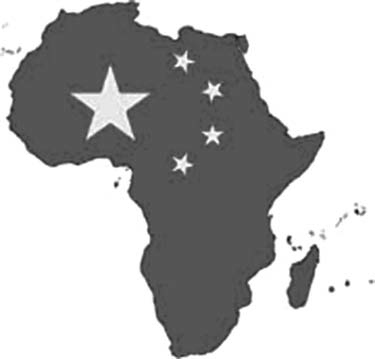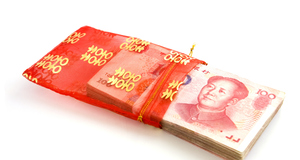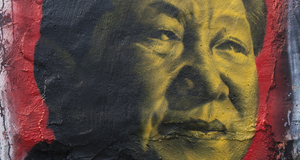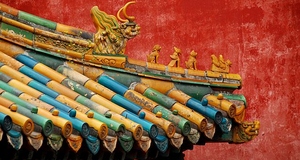From Cornell International Affairs Review VOL. 1 NO. 1China-Africa Interaction: Prospects for a Strategic Partnership
IN THIS ARTICLE
KEYWORDS
China’s emergence as a key player in Africa, the impact of its presence and its challenges to traditional Western pre-eminence in African economies are among the hallmarks of the changing economic scenario in the twenty-first century. Beijing’s present-day engagement in Africa is not new: it has its roots in policies pursued since the mid-1950s as well as in earlier historical precedents. Historically, China’s role in Africa has hinged on providing diplomatic and moral support to liberation struggles in that continent. It has also provided African countries with great assistance since their independence, with a view to helping in the development of their national economies and the social progress there. Beijing’s relations with Africa during the Cold War were geopolitically motivated and were based on opposing the superpowers and Western dominance. However, in the 1990s, this approach towards Africa changed and the new driving force was economic interests. The interaction between the two sides increased over the years, with Beijing’s economic interests being the prime mover. The shift was further enhanced with the rise of African global energy markets. Energy reserves have expanded the horizons of its relations with China, as Beijing initiated energy co-operation and agreements with African countries. On the diplomatic front, Beijing has maintained close political relations with African countries through frequent exchanges of high-level visits. At international forums, both China and the African countries have co-operated and supported each other on the issue of human rights and other important issues. Another component of Beijing’s interests in Africa is that China has recognized the significance of the 53 votes that the African Union (AU) maintains in the General Assembly, which holds the key to preserving the “One-China Policy” with regard to the question of Taiwan’s independence. This paper is an attempt to present an overview of Sino–African relations from a historical perspective and will discuss the key areas of co-operation between China and Africa and how the developments in these areas provide the context in which China is developing its relations. The accompanying dynamics of Chinese re-engagement with Africa can be analyzed in three dimensions: the economic perspective; the diplomatic rationale defining the relations; and a broader set of concerns, linked to China’s interests in the region. Finally, the paper will examine the opportunities and challenges facing the prospects of co-operation between China and Africa. An Historical Account of Links between China and AfricaThe history of interaction between China and Africa dates back to ancient times. The early 1400s saw the first Chinese visits to Africa, when the Ming Emperors dispatched ships to the continent’s eastern coast. In the eighteenth and nineteenth centuries, both Africa and China underwent periods of brutal subjugation at the hands of Western colonial powers. These colonial experiences helped develop a mistrust amongst both Chinese and Africans towards the intentions of Westerners, which lasts to this day. In the seventh century ad, there were direct contacts at sea between China and Africa. In the fifteenth century, the famous Chinese navigator, Admiral Zheng, in command of a fleet, spent quite some time sailing along the east coast of Africa during three of his seven voyages, stopping at Mogadishu, Mozambique, and Zanzibar.1 This period is usually regarded as the high point in Sino-African exchange. In this era, not only were there mutual visits but also trade of goods as well as scientific and technological exchanges. All these have not only promoted the social and economic development of the two sides, but also contributed enormously to the world’s civilization and progress. Modern African-Chinese relations date back to 1956, when Beijing first established diplomatic relations with Egypt. Since then, it has established diplomatic relations with 46 out of the 53 countries in Africa. China undertook major infrastructure projects as part of the Cold-War competition for influence in the post-colonial developing world. It offered material and moral support to the African national liberation movements and their struggle against imperialism and racism in the 1950s and 1960s.3 Africa, during the Cold War, was seen primarily by Chinese leaders as terrain for ideological competition with the Soviet Union and the US, as well as the remaining European influences. At the end of 1963, during his famous tour of ten African countries, Premier Zhou Enlai put forward “China’s five guiding principles” in its relations with African countries, laying a solid foundation for Sino-African friendly co-operation. China maintained close political relations with African countries through frequent exchanges of high-level visits. All Chinese leaders, including Mao Zedong, Zhou Enlai, Deng Xiaaoping, Jiang Zemin, Hu Jintao, and Prime Minister Wen Jiabao have attached great importance to strengthening solidarity with African countries. Mao Zedong met with the visiting African state leaders many times. Former State President, Jiang Zemin, visited Africa four times. President Hu Jintao visited Africa twice, while he was vice president.4 China and African countries have co-operated and supported each other in international affairs. In 1971, the People’s Republic of China was restored to its lawful seat in the UN with the support of African countries: among the 76 votes in its favour, 26 were from African countries, accounting for more than one-third. With their support, China has defeated eleven consecutive anti-China motions tabled by Western countries in UN Human Rights sessions and prevented 14 proposals raised by the General Committee before the annual UN General Assembly for Taiwan to “rejoin or participate in the UN” from getting on the formal agenda since 1990. They have also helped China to frustrate attempts by Taiwanese authorities to access international organizations that only sovereign states are entitled to join.5 Over the past 50 years, despite the turbulent international environment and the tremendous changes in their respective countries, China and African countries have consistently deepened their friendship and co-operation. China’s renewed interest in Africa was concurrent with a lessening of Western engagement with the continent. While many in the West now consider China a threat, Africans see China mostly as an opportunity. Beijing’s only political condition for establishing ties is the “One China” principle–recognizing Taiwan’s as an integral part of China. China has successfully wooed away Chad, Liberia, and Senegal from Taiwan since 2003. In an effort to retain allegiance, Taiwan is pumping extra funds into the five African states (Burkina Faso, Malawi, Sao Tome, Principle, and Swaziland) that continue to recognize it.6 China and Africa in the Post-Cold War EraChina’s growing presence is the most important development in Africa since the end of the Cold War. The new China–Africa strategy features co-operation in the political, economic, cultural, and security fields, as well as in international affairs. Trade RelationsChina and Africa have concluded various trade agreements in the past. The first initiative was taken in the framework of 1955 Bandung conference. This agreement was merely political, but while establishing diplomatic ties with African countries, economic and cultural agreements were also signed by both parties. In 2000, the first large-scale conference on Sino-African trade was held in Beijing. According to China, the purpose of the Sino-African forum was “the construction of an international political and economic order,” to explore new avenues for Sino-African co-operation. Over 40 African states with 80 foreign ministers and ministers in charge of international economic co-operation were present.7 In addition, 17 international and regional organizations, NGOs, and entrepreneurs were also in attendance to discuss South-South co-operation, the North-South dialogue, debt relief, and Chinese economic co-operation with African states. Trade between China and Africa has quadrupled since 2000, when it totalled around US $10 billion. Just five years later, it had increased to US$28 billion. China is now Africa’s third largest commercial partner after the US and France, and the second largest exporter to Africa after France.8 Remarkably, Britain, as a former colonial power, has been left behind by China. China’s economic relationship with Africa is based on the drive for resources, new exports markets, and new investment opportunities for Chinese companies. Exports from Africa to China are primarily commodities and oil, while African imports from China consist of manufactured goods, such as industrial products, electrical equipment and machinery, textiles, and household utensils. In recent years, Chinese firms have redoubled their efforts to penetrate the African market. Direct Chinese investment in Africa has reached $11.25 billion. Over 800 companies are currently operating in Africa, engaged in trade, manufacturing, natural gas exploration, transportation, agriculture, and agricultural processing.9 Chinese companies have created employment opportunities in African countries, increasing their tax revenues, introducing practical technologies to these countries, and enhancing the competence of local workers and thus improving their productivity. While Africa exports natural resources to China, many manufactured goods are being imported from China. China has been able to find a ready market for its cheap low-quality consumer products and it is trying aggressively to take control of it. The number of Chinese traders has increased since 1960s when they settled in Africa on a large scale. In 1949, there were about 27,000 Chinese in Africa; this number had grown to 130,000 by 1999. Most of the traders have settled in Mauritius, Madagascar, and South Africa.10 These traders import Chinese goods that are attractively priced for the African market, where purchasing power is limited. African businessmen too increase their profit margins in the process, by cutting out intermediaries. This is the case in almost all African countries, with the African market being flooded with cheap Chinese products. China is focusing its exports on countries with large populations, such as South Africa, Nigeria, Egypt, Morocco, and Algeria. These five countries, with their relatively higher purchasing power by African standards, together account for 58 per cent of African imports from China.11 International observers fear that the Chinese way of doing business–paying bribes and attaching no conditions–undermines local efforts to increase transparency and good governance. And the IMF and the World Bank are unable to then put as much pressure on countries because they are supported by China. Finally, Chinese companies are bringing their labor to work in Africa. In areas where unemployment is already high, the effects of migrant Chinese labor will be felt over time. For example, in Angola some domestic suppliers and retailers have had to close down, as resentment against the growing Chinese influence is also being felt.12 Chinese Arms in AfricaArms always have been among the Chinese commodities exported to Africa. During the struggle for the independence, and during the Cold War, China exported arms to fight Western imperialism. An ideology for a new world order lay at the root of these exchanges. And China is still exporting arms to certain countries, although the reason behind these exports has become less idealistic. Selling arms to some African leaders improves bilateral relationships and can enhance Chinese access to oil and natural resources. The involvement of China in African politics become clears when one looks at the military exchanges between China and African states. Over the years, China’s defence ministers have paid numerous visits to their African colleagues and vice verse. According to the congressional research service, China’s arm sales to Africa between 1996 and 2003 made up 10 per cent of all arms sales to Africa.13 China made weapons and ammunitions are plentiful in Africa and China does not usually impose political, human rights, or humanitarian conditions on arm sales, though it has refused to supply UN-sanctioned states such as Ivory Coast. Countries like Sudan and Zimbabwe are reportedly major recipients of Chinese weapons. China does not demonstrate much concern for human rights, which they consider to be a Western concept. China has supplied the Khartoum government with arms since at least 1985, with transfers between 1985 and 1989 totalling $50 million.14 China became Sudan’s principal arms supplier around 1994 and remains so to this day. During the Ethiopian–Eritrean war in 1998, it delivered arms to both sides for a total of more than US $1 billion. China sold the Sudanese government weapons and helicopters that were used in Darfur to terrorize the local people. In 2000, Zimbabwe delivered 8 tons of Zimbabwean ivory to China in exchange for a shipment of small arms. In 2004, China sold to the Zimbabwean army 12 fighters jets and 100 trucks in a deal worth more than US $200 million: all this to a country subject to arms embargo by the US and the EU.15 China's Quest for Energy Reserves in AfricaThe need to find resources is now the driving component in Chinese foreign policy. In 2003, it surpassed Japan as the world’s second-largest oil consumer, after the US. Oil and high commodity prices are the key drivers of China’s renewed activity. Between 2000 and 2005, China was responsible for about one-quarter of the growth in world oil demand (though it still accounted for less then eight per cent of global consumption). And Chinese demand is forecast to more than double by 2025 to 14.2 million barrels a day from the current 7 million a day, according to the US government’s Energy Information Administration.16 The growing demand is due not only to an expanding economy but also to a generally wealthier society, with its increased demand for consumer goods. This growing need for energy drives China to look for energy markets in its new role as a major oil importer. Africa possesses around 8 per cent of the world’s oil reserves and 11 per cent of world oil production. It is estimated that production in Africa is rising 6 per cent annually. By 2007, it will reach 7 million barrels a day and, by 2010, this figure is estimated to become 8 million.17 New deep-water oil discoveries have been made in the Gulf of Guinea–more specifically, in Nigeria, Angola and Equatorial Guinea. China’s demand for energy to feed its booming economy has led it to seek oil supplies from African countries including Sudan, Chad, Nigeria, Angola, Algeria, Gabon, Equatorial Guinea, and the Republic of Congo. In 2005, Chinese companies invested a total of $175 million in African countries, primarily on oil exploration projects and infrastructure. China already has a significant presence in many African countries, notably Sudan.18 The pace of China’s engagement in Africa quickened after 2003 for two reasons. First, President Hu Jintao focused on the urgent need for energy diversification in Beijing; second, an attempt in 2005 by China state-controlled energy firm, China National Offshore Oil Corporations (CNOOC), to gain control of the American firm UNCOCL when a $18.5 billion bid collapsed under pressure from the US Congress.20 Such failures have persuaded Beijing to take risks in unstable countries it might not otherwise deal with, partly to avoid direct competition with the major multinationals. The episode taught Beijing that it would have to be aggressive in competing for natural resources. In many ways, US protectionism was a wake-up call and motivator for more frenetic activity by Chinese companies. Beijing is outbidding Western contractors on infrastructure projects, while providing soft loans and using political means to increase its competitive advantage in acquiring natural resource assets in Africa. China is discovering harsh crash accounts in competing with Western oil companies in Africa. Competition for resources is driving up “signature bonus payment,” in which companies pay upfront for access to fields. This makes firms more dependent on oil prices staying higher for longer and on squeezing returns.22 China’s role in Africa in many respects is not dissimilar to the policies of other states in the continent, primarily focused on extraction and diversification of energy and mineral supplies for strategic purposes. In March 2007, Commerce Minster Bo Xilai defended Beijing’s record by noting that China’s share of Africa’s total oil exports in 2006 stood at only 8.7 per cent, compared with 36 per cent for Europe and 33 per cent for the US.23 Chinese official policy is explicitly non-prescriptive. It stresses the importance of political stability and internally-driven development and promotes a sovereignty-based order. Beijing’s non-interventionist approach separates business from politics. However, the terms and practices for China as a donor remain opaque, with indications that strings are indeed attached between aid and business arrangements. The Chinese offer package deals that include infrastructure development or long-term, low-interest loans that Western and Japanese investors, who regard Africa as a risky emerging market, do not offer. The Chinese believe that the conflicts and instability that began in the 1990s are drawing to a close and Africa is ripe for economic takeoff. China’s search for natural resources is also part of Beijing’s strategy of increasing its diplomatic and economic profile as it asserts itself as an emerging superpower.Continued on Next Page » Suggested Reading from Inquiries Journal
Inquiries Journal provides undergraduate and graduate students around the world a platform for the wide dissemination of academic work over a range of core disciplines. Representing the work of students from hundreds of institutions around the globe, Inquiries Journal's large database of academic articles is completely free. Learn more | Blog | Submit Latest in International Affairs |





















